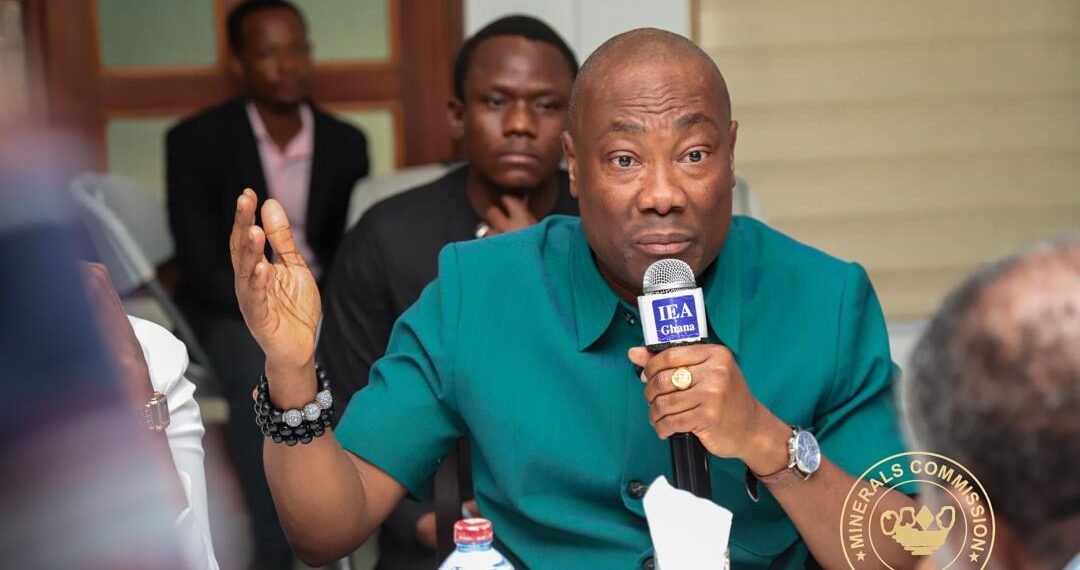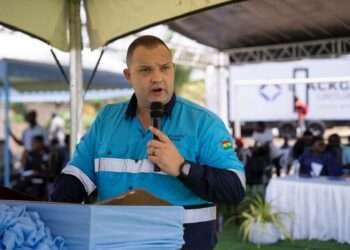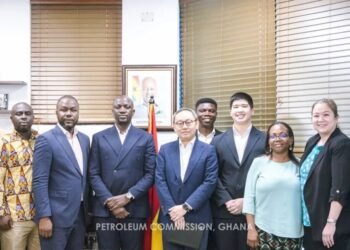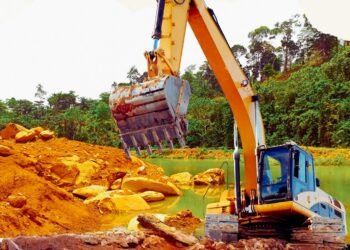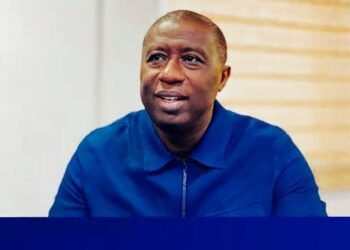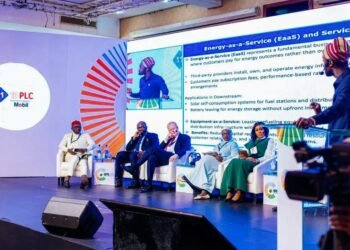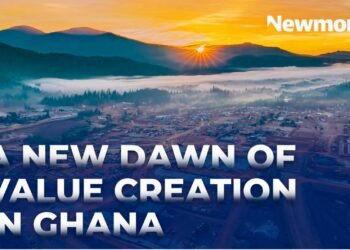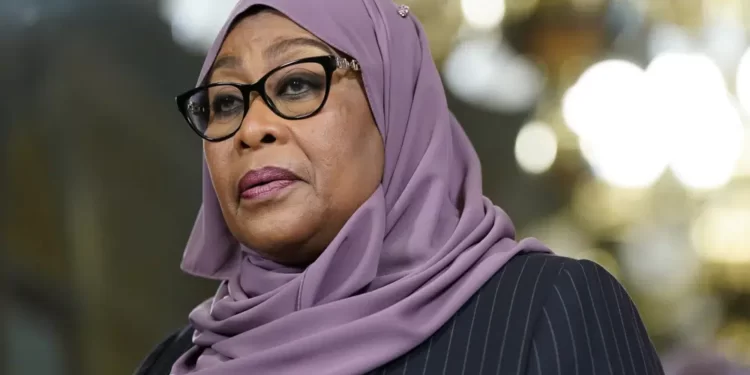The Minerals Commission has unveiled sweeping reforms to Ghana’s mining laws, aimed at modernizing the regulatory framework, addressing long-standing implementation challenges, and ensuring that the nation derives greater benefits from its mineral wealth.
Chief Executive Officer of the Commission, Mr. Martin Kwaku Ayisi, disclosed the proposals during an engagement with the Institute of Economic Affairs (IEA) in Accra.
He emphasized that the amendments to the Minerals and Mining Act, 2006 (Act 703) were long overdue after more than a decade of operational hurdles.
“The Minerals and Mining Act and its regulations have been in force for thirteen years. Over this period, we have faced significant implementation challenges.
“Sometimes, a strategic pivot is required not because of failure, but as a proactive step to enhance efficiency and optimize outcomes. This reform process is driven by both necessity and foresight.”
Mr. Martin Kwaku Ayisi, Chief Executive Officer of the Commission
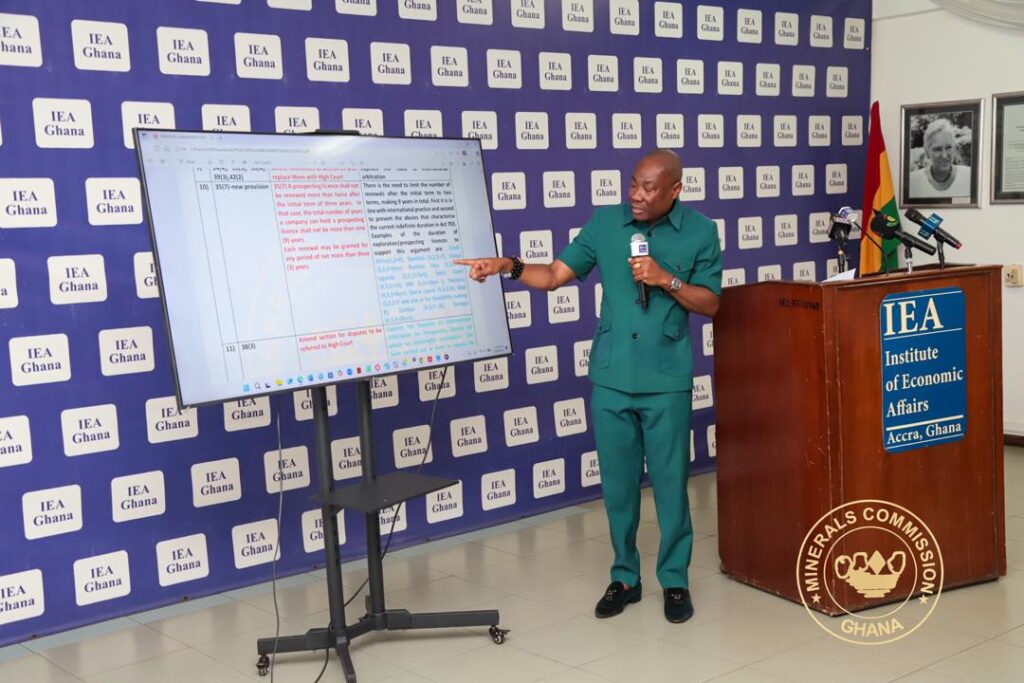
Civil society organizations, policy think tanks, and the media have repeatedly drawn attention to the poor living conditions in mining communities and the limited benefits accruing to Ghanaians despite the country’s vast mineral resources. According to Mr. Ayisi, the reforms also respond to this public pressure.
He stressed that Ghana’s mining policies must be framed within a regional and global context but tailored to the country’s unique circumstances. “We cannot blindly adopt practices from neighboring states,” Mr. Ayisi.
“For instance, certified mine managers are a requirement in Ghana but may not be enforced elsewhere.
“We must avoid a race to the bottom in regulatory standards. Our policy framework must be conscious of our domestic realities while recognizing cross-border risks.”
Mr. Martin Kwaku Ayisi, Chief Executive Officer of the Commission
Key Legislative Changes
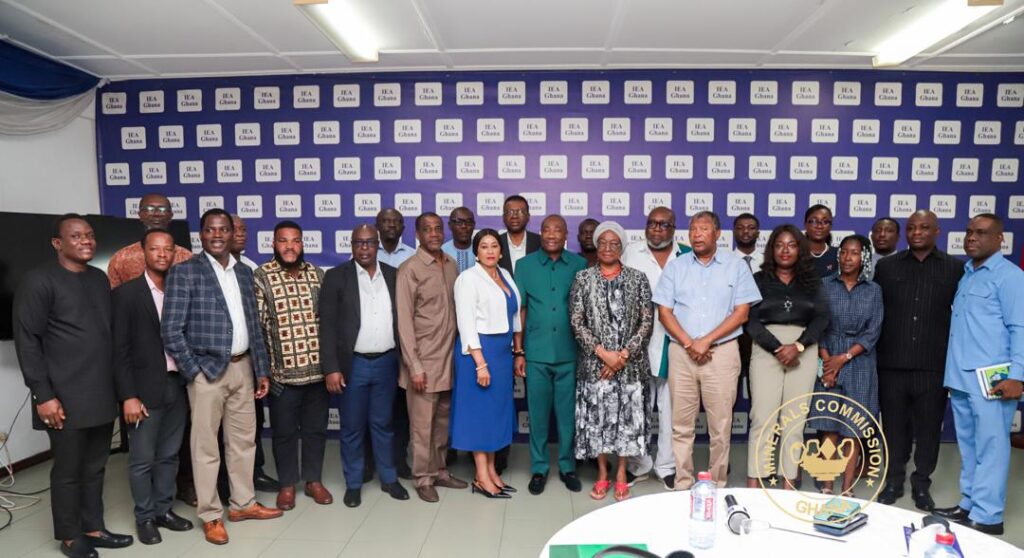
Among the major proposals is the abolition of Development Agreements (DAs) and Investment Agreements, which have historically granted preferential fiscal terms to certain companies.
According to Mr. Ayisi, these deals have constrained government revenue, especially during commodity price booms.
“When gold averaged over $3,000 per ounce recently, the state could not capture a fair share of the windfall because stabilization clauses locked in under DAs prevented tax adjustments.
“Conversely, during downturns, the government still offered tax reliefs to prevent mine closures. This asymmetry is unsustainable.”
Mr. Martin Kwaku Ayisi, Chief Executive Officer of the Commission
The reforms will also reduce the maximum duration of mining leases from 30 years to 15 years, aligning with actual mine life spans and international practice. Studies show that 80% of mines globally have lifespans of less than 10 years.
Additionally, the Commission plans to curtail the scope of stabilization clauses, which currently extend beyond fiscal matters to cover environmental and social laws.
Only highly capital-intensive projects, such as refining or major infrastructure, may qualify for limited stability provisions.
On prospecting licences, Ghana will end the practice of perpetual renewals that has encouraged speculative hoarding. Instead, renewals will be capped between seven and nine years, consistent with countries like South Africa, Namibia, and Côte d’Ivoire.
Perhaps most significantly, Community Development Agreements (CDAs) will become mandatory. Unlike the current voluntary contributions based on profits, the new system will link contributions to revenues.
Mr. Ayisi explained, “If Newmont’s Ahafo mine had contributed just 1% of its $1.8 billion revenue last year, $18 million would have gone directly to local communities,” stressing that this change aligns Ghana with global best practice.
Perspectives from Industry Experts
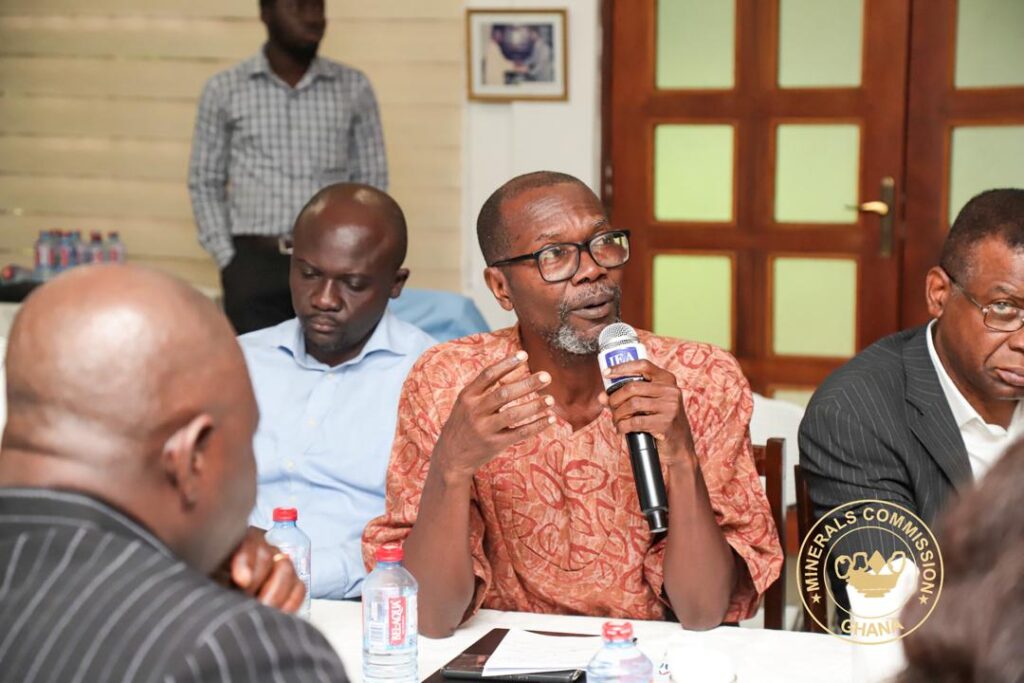
Former Minerals Commission CEO, Mr. Benjamin Aryee, welcomed the reforms but warned that sustainable value creation requires more than just revenue adjustments.
“For decades, our mining industry functioned as an enclave economy, with most inputs imported.
“This led to consistent capital outflows. The key now is local participation and ownership across the value chain.
Mr. Benjamin Aryee, Former Minerals Commission CEO
Mr. Aryee added, “By supplying more inputs domestically, we ensure economic benefits circulate within Ghana.”
Mr. Aryee also highlighted the need to diversify focus beyond gold to industrial and development minerals that could build stronger downstream linkages and reduce economic leakages.
He urged policymakers to think long-term, calling for investments in systematic geological surveys and strategic decisions on when to exploit resources such as lithium.
The reforms have reignited debate on Ghana’s mining governance. Some stakeholders have suggested Production Sharing Agreements (PSAs), similar to those in the oil industry, as a fairer model for resource extraction.
Others have raised concerns about small-scale mining and its contributions relative to large-scale operations.
Yet, the Minerals Commission insists that the legislative overhaul is a critical step toward sustainable growth.
As Parliament prepares to debate the proposals, the outcome will determine whether Ghana can finally turn its mineral endowment into broad-based prosperity or continue the cycle of wealth extraction with limited national benefit.
READ ALSO: Ghana Set to Smash All 2025 Economic Targets – IC Research Hails Strong H1 Performance

